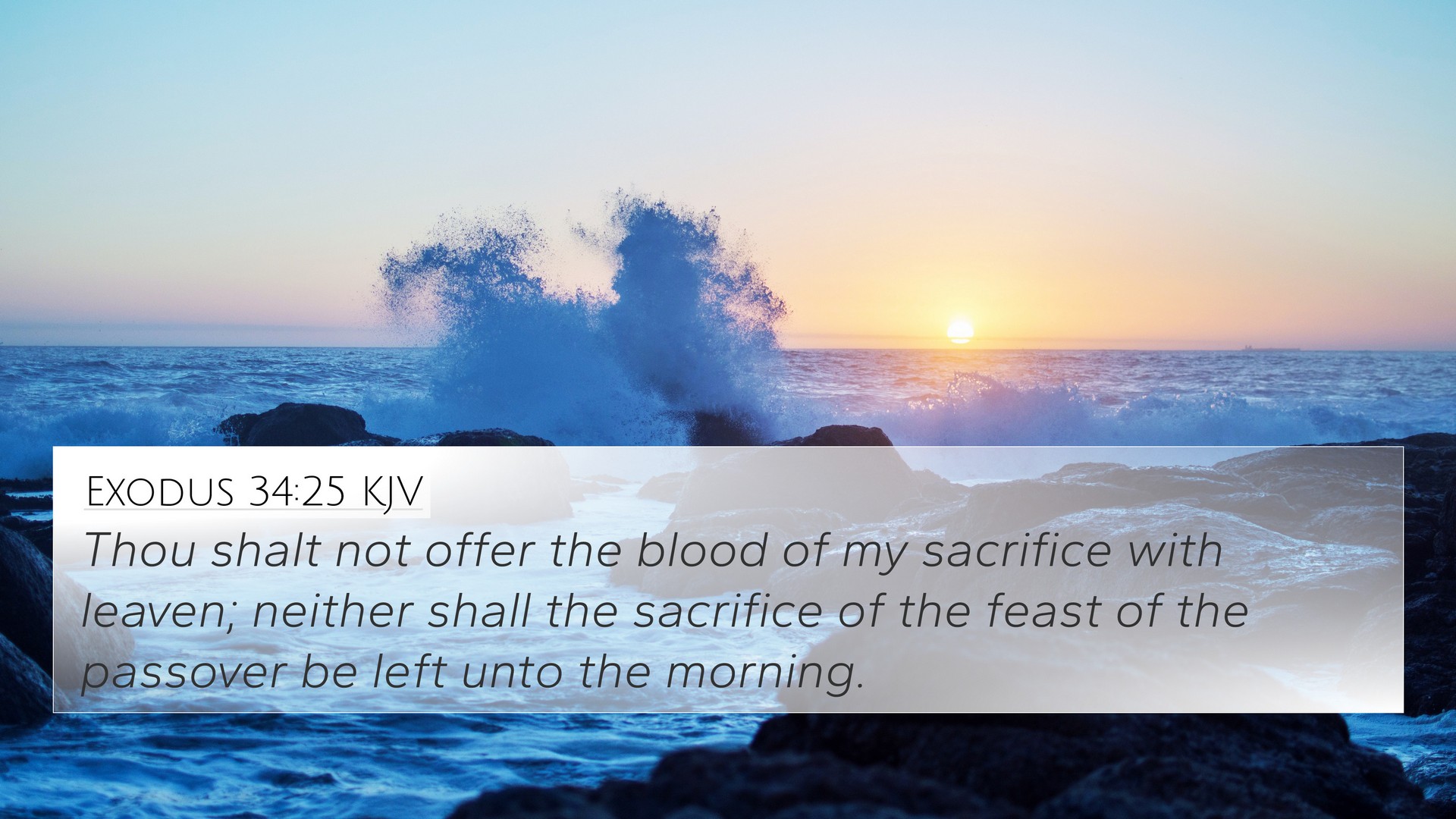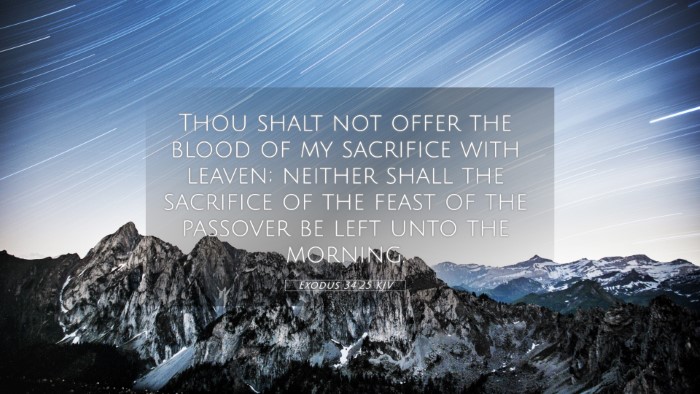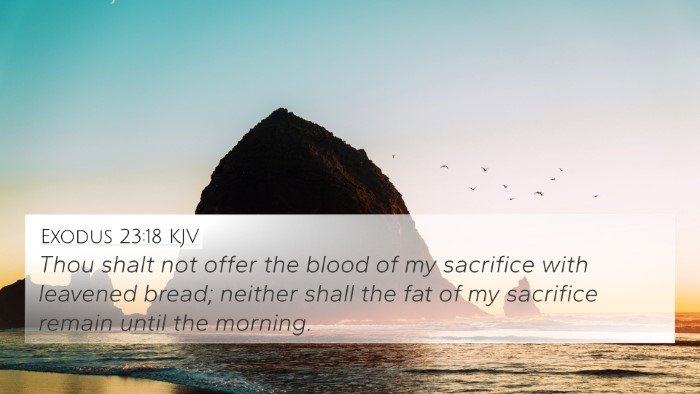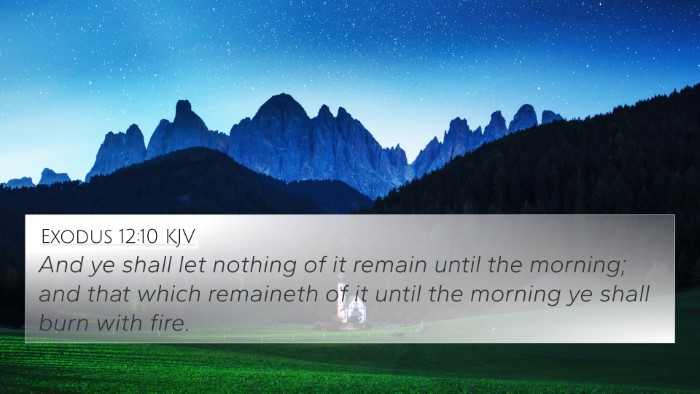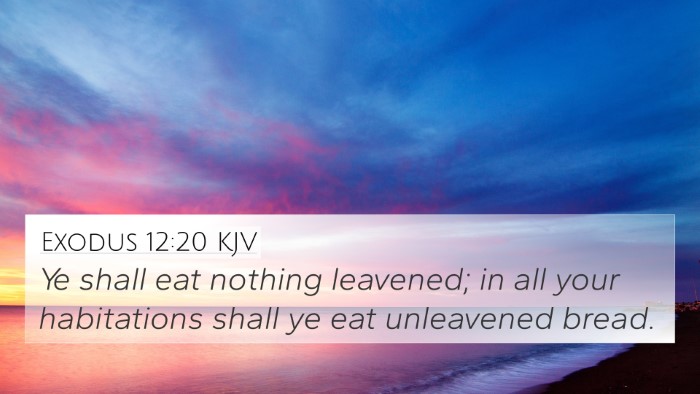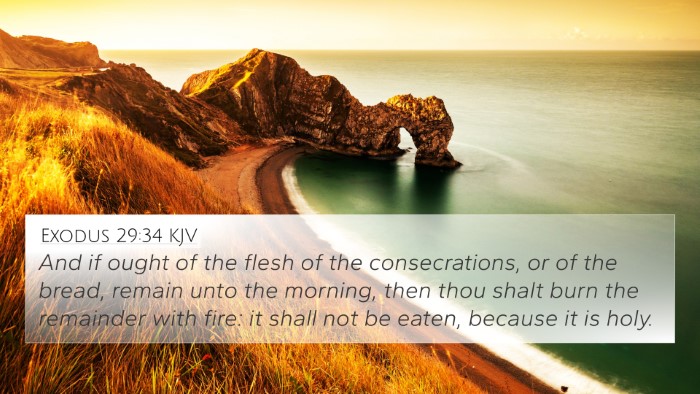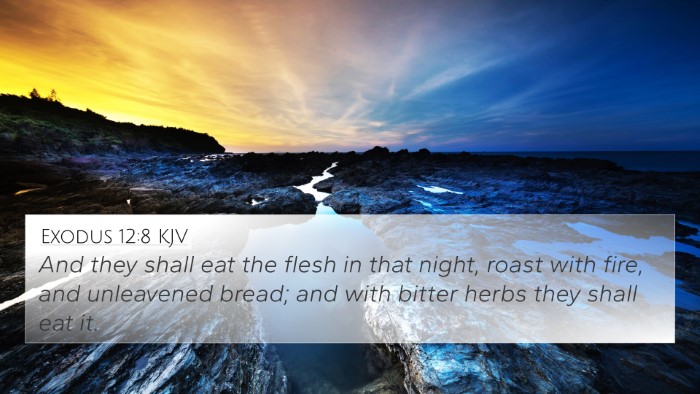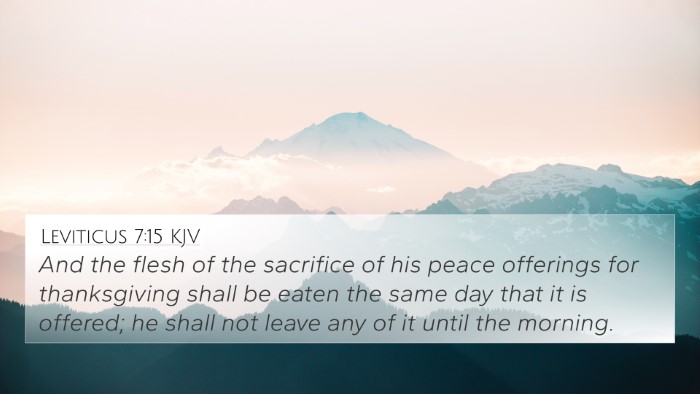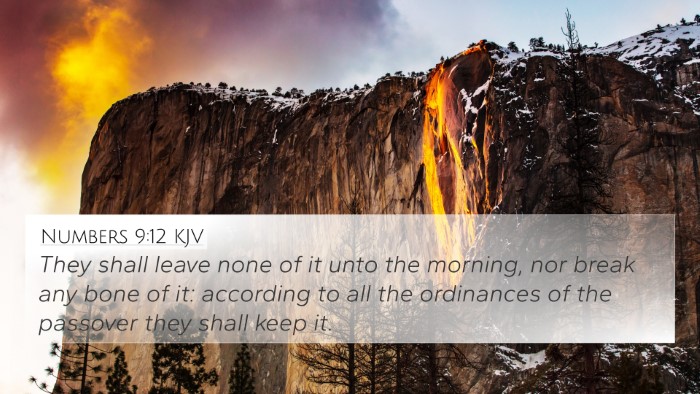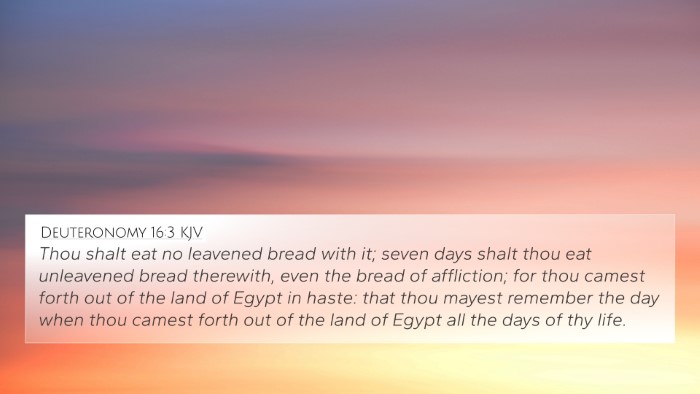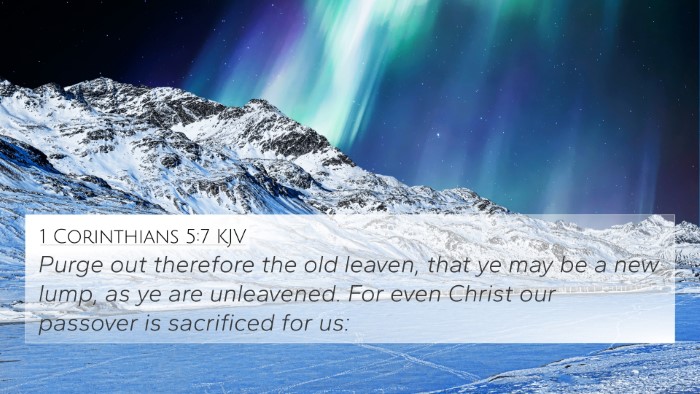Understanding Exodus 34:25
Exodus 34:25: "Thou shalt not offer the blood of my sacrifice with leaven; neither shall the sacrifice of the feast of the passover be left unto the morning."
Summary of Exodus 34:25
This verse is a part of God's instructions to Moses concerning the proper conduct of worship and the sacrifices that were to be offered by the Israelites. It emphasizes the significance of purity and sanctity in sacrificial practices.
Insights from Commentaries
-
Matthew Henry:
Henry emphasizes that leaven represents corruption and sin, and thus should not accompany the precious blood of Christ, symbolized in the sacrifices. The instruction serves to remind the Israelites that their worship ought to be sincere and free from moral impurity.
-
Albert Barnes:
Barnes comments on the importance of this divine regulation, noting that leaving the sacrifice until morning could signify negligence or disrespect towards the sacred elements of worship. This reflects a theme of diligence in maintaining the holiness of sacrifices.
-
Adam Clarke:
Clarke elaborates that the prohibition of leaven during sacrifices signifies a deeper spiritual truth. The blood of the sacrifice should not be associated with anything that corrupts, representing the need for purity in our approach to God.
Thematic Connections and Cross-References
Exodus 34:25 invites us to explore various thematic Bible verse connections. Here are some key cross-references that relate to this verse and expand on its themes:
- Leviticus 2:11: "No grain offering that you bring to the LORD shall be made with leaven..." - Reinforces the prohibition of leaven in offerings.
- Deuteronomy 16:3: "You shall eat no leavened bread with it; seven days you shall eat unleavened bread with it..." - Similar emphasis on unleavened bread during the Passover.
- 1 Corinthians 5:7-8: "Purge out therefore the old leaven, that ye may be a new lump..." - Connects the concept of leaven to sin and purification in Christian teachings.
- Hebrews 9:22: "And almost all things are by the law purged with blood; and without shedding of blood is no remission." - Highlights the significance of blood in the sacrifice system.
- Exodus 12:10: "And ye shall let nothing of it remain until the morning..." - Speaks to the importance of consuming the Passover lamb entirely, connecting to the idea of completeness in worship.
- Matthew 26:27-28: "And he took the cup, and gave thanks, and gave it to them, saying, Drink ye all of it; For this is my blood of the new testament..." - Relates the blood of Christ to the Old Testament sacrificial system.
- John 6:53: "Then Jesus said unto them, Verily, verily, I say unto you, Except ye eat the flesh of the Son of man, and drink his blood, ye have no life in you." - Connects the theme of sacrificial consumption with salvation.
Importance of Cross-Referencing in Biblical Study
Understanding Exodus 34:25 and similar verses is deepened through cross-referencing. Here are some tools and methods for effective Bible cross-referencing:
- Bible Concordance: Utilize a concordance to find key terms, allowing you to explore related verses.
- Bible Cross-Reference Guide: Many study Bibles include cross-reference notes to connect related passages seamlessly.
- Cross-Reference Bible Study: Engaging with a group or study can enhance understanding through shared insights.
- Inter-Biblical Dialogue: Reflecting on how Old and New Testament texts converse can illuminate deeper meaning.
- Thematic Studies: Explore themes such as sacrifice, purity, and redemption through a comprehensive examination of connected verses.
Conclusion
Exodus 34:25 reminds us of the seriousness and sanctity of our approach to God through worship and sacrifice. By engaging with the cross-referenced scriptures and employing Bible study tools, we can gain a richer understanding of God's Word and its application to our lives.
